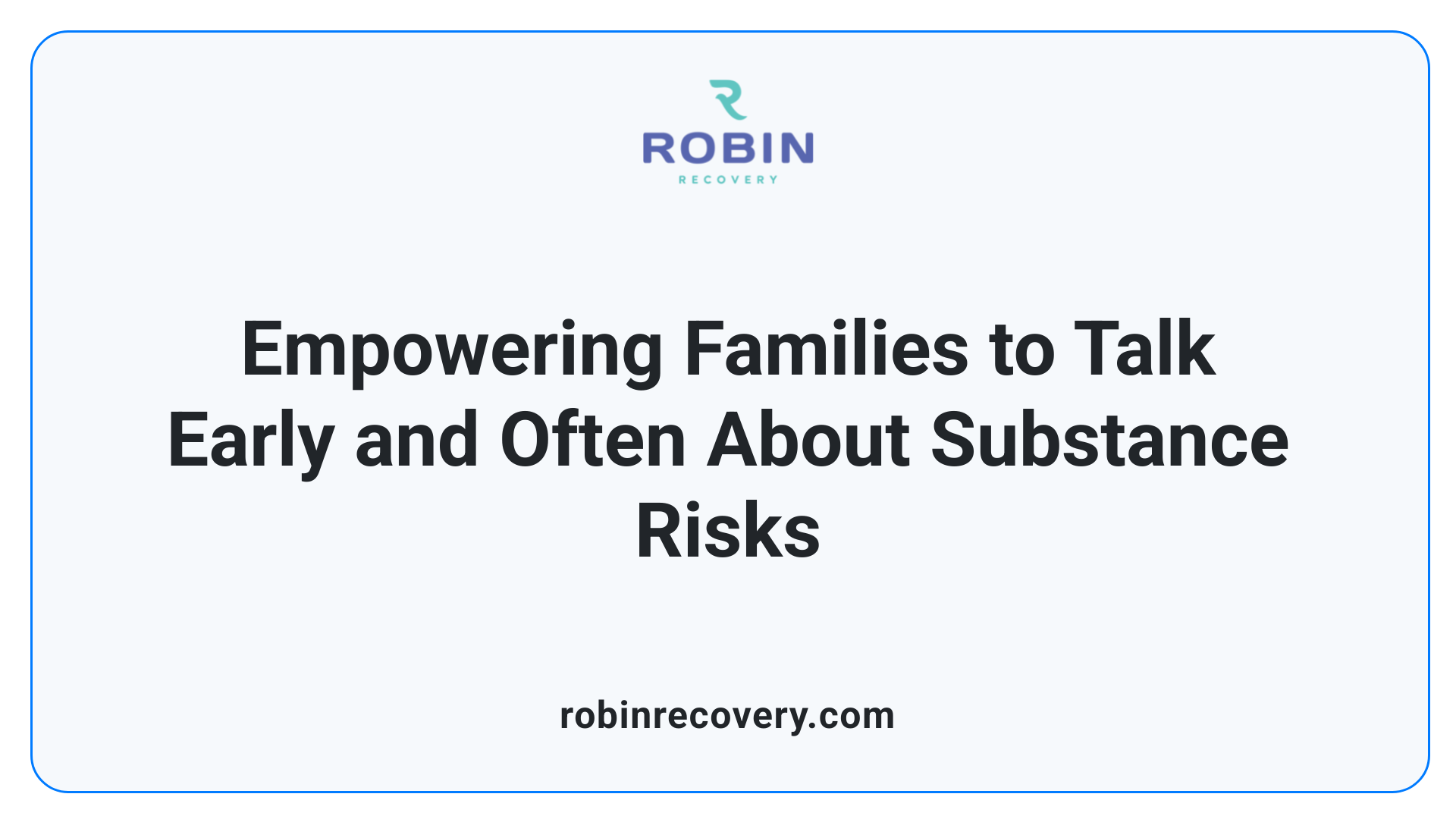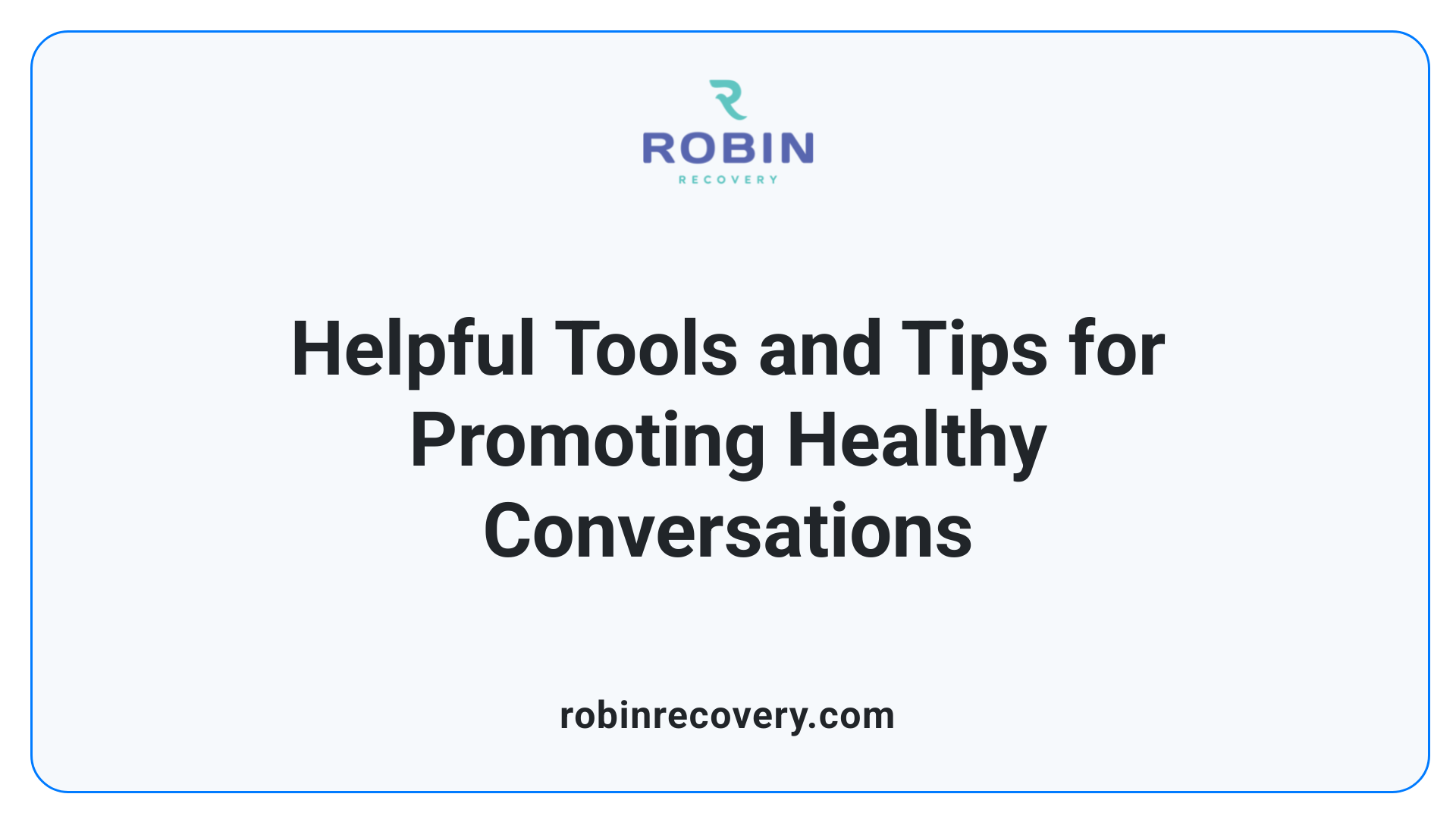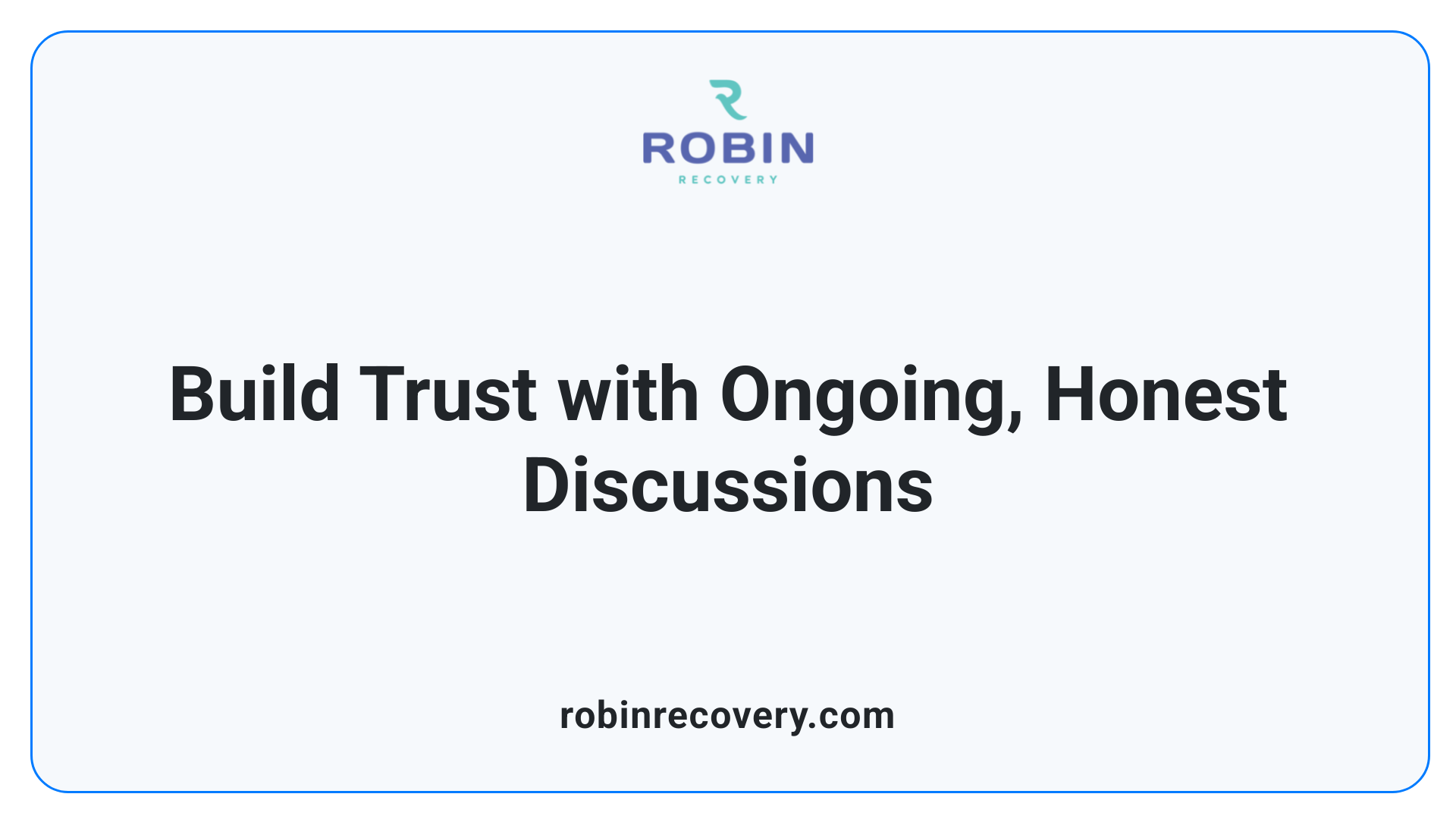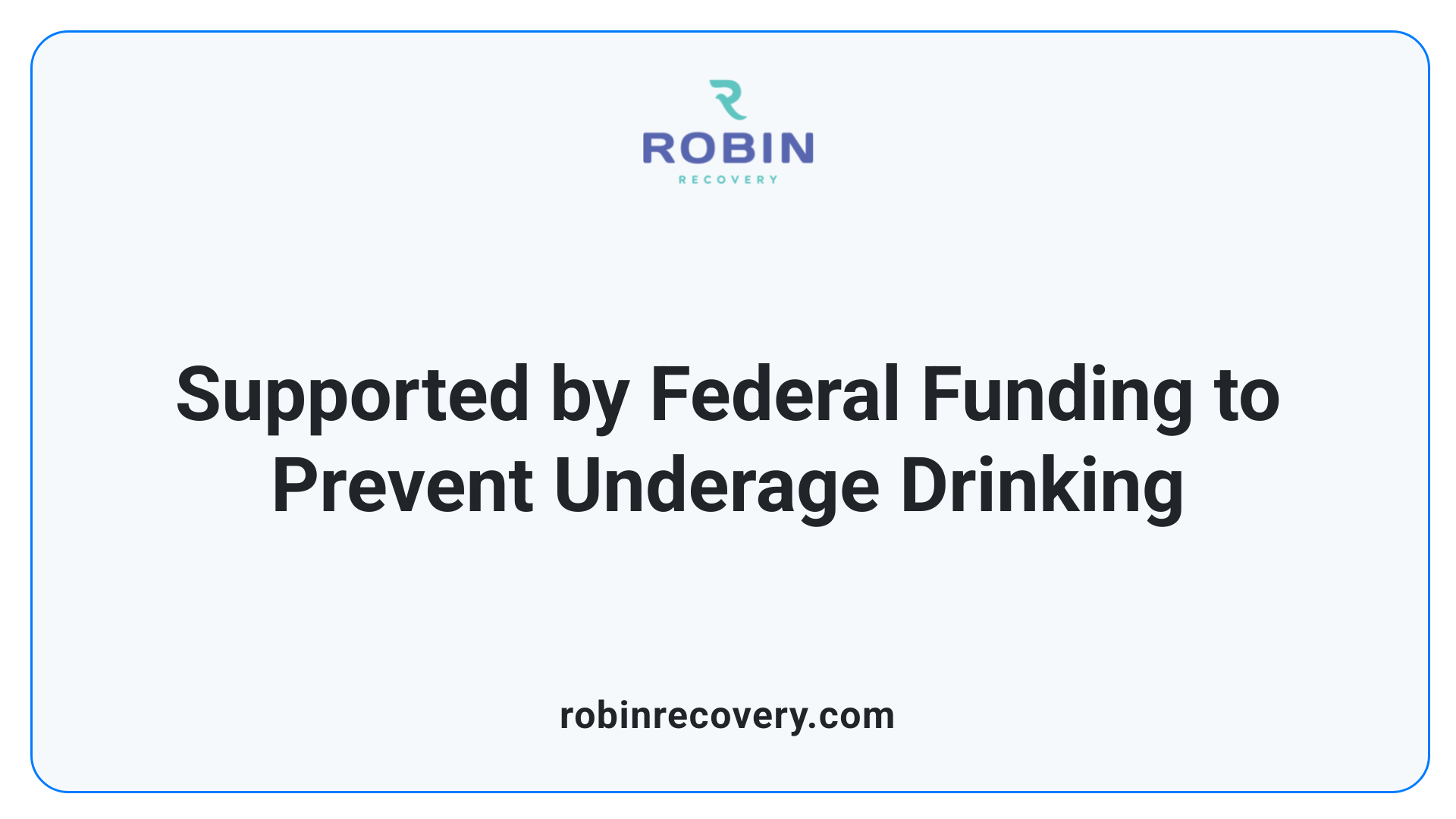Talk. They Hear You.

Understanding the Importance of Early Dialogue
The 'Talk. They Hear You.' campaign is a national initiative dedicated to addressing underage drinking and substance use among youth. Recognizing that early prevention is crucial, the campaign emphasizes the vital role parents, caregivers, educators, and community members play in shaping healthy behaviors. This article explores the campaign’s purpose, resources, strategies for communication, and ways to engage, all aimed at fostering safer, healthier communities for young people.
Purpose and Goals of the Campaign

The 'Talk. They Hear You.' campaign, created by the Substance Abuse and Mental Health Services Administration (SAMHSA), aims to prevent underage drinking and substance use among youth under 21. Its primary goal is to empower parents, caregivers, educators, and community members with the knowledge, resources, and skills necessary to have meaningful conversations with children about alcohol, drugs, and related risks.
One of the main objectives of the campaign is to increase awareness among adults about the prevalence and dangers of underage drinking and substance use. Research shows that about 88,000 deaths annually in the U.S. are attributed to alcohol, making it the third leading preventable cause of death. The campaign emphasizes the importance of early communication, encouraging parents to talk to children as young as 9 years old.
The campaign provides a wide range of resources, such as educational sessions, podcasts, webinars, discussion guides, and a mobile app, to support these conversations. These tools help parents and caregivers show disapproval of underage drinking, demonstrate that they care about their child's health, serve as reliable sources of information, pay subtle attention, and help children develop refusal skills.
By fostering open, ongoing dialogue about the risks and realities of alcohol and drug use, the campaign seeks to influence children's decisions and reduce the likelihood of initiation. Overall, its purpose is to create a community culture that prioritizes prevention, mental health, and healthier lifestyle choices among youth.
The campaign celebrated its 10th anniversary in 2023 and continues to promote prevention efforts during National Prevention Week. With over 80% of youth considering their parents influential in their decisions, early and frequent conversations are vital in shaping healthier behaviors.
Resources and Educational Materials for Parents and Caregivers

The 'Talk. They Hear You.' campaign offers a variety of educational resources designed to support parents and caregivers in their crucial role in preventing underage substance use. These materials include engaging videos, comprehensive guides, informative fact sheets, and interactive tools that cover important topics such as social-emotional skills, mental health, and early signs of emotional or behavioral issues.
The campaign’s educational content emphasizes the importance of early and ongoing conversations about alcohol and drugs, equipping caregivers with strategies for age-appropriate discussions. Resources explore child developmental milestones, positive parenting practices, and how to recognize warning signs of mental health challenges like depression or trauma.
Support services are also available for immediate assistance and personalized help. These include hotlines, community program locators, and specialized centers that connect families with local resources and services tailored to their needs.
To enhance engagement, the campaign provides digital tools like videos and social media messages, making information more accessible and encouraging caregivers to take quick, practical steps. Recognizing the diversity of families, many resources are available in multiple languages, including Spanish, fostering inclusive access.
Overall, these educational materials aim to foster healthy family environments, support youth resilience, and promote informed conversations about substance use, health, and well-being. With these tools, caregivers are better prepared to guide their children safely through adolescence and reduce the risks associated with underage drinking and drug use.
How Adults Can Initiate and Sustain Conversations on Substance Use

Building trust through ongoing small talks.
Establishing a pattern of regular, casual conversations helps create a safe space where children feel comfortable discussing sensitive topics like substance use. Small, frequent talks foster familiarity and trust, making it easier for youth to open up about their questions and concerns as they grow older.
Using honesty, respect, and facts in discussions.
Parents and caregivers should approach these conversations with sincerity and respect. Providing accurate, age-appropriate information from reputable sources such as NIDA or NIAAA ensures that children receive reliable facts about the risks of alcohol and drugs. Explaining policies and reasons behind them demonstrates concern and helps children understand the importance of making safe choices.
Observing cues and adapting conversations as children grow.
Monitoring behavioral cues and emotional changes can help adults identify the right moments to talk. As children mature, conversations should evolve from simple awareness to more detailed discussions about peer pressure, decision-making, and refusal skills. Flexibility and attentiveness are essential to meet the child’s developmental needs.
How can adults initiate conversations about substance use with youth?
Adults can start these discussions by creating a series of ongoing, small talks to build trust gradually. Approaching children with honesty, respect, and a non-judgmental attitude sets a positive tone. Explaining rules and the reasons behind them helps teens comprehend the risks and values involved.
An effective strategy involves being well-informed about current facts, including dangers associated with vaping, alcohol, and other drugs. Such knowledge allows adults to communicate confidently and accurately.
Observation of behavioral cues provides prompts for meaningful dialogue. When noticing changes in mood, social interactions, or academics, adults can gently start conversations. Tailoring the discussion to the child’s age and maturity ensures relevance.
Ultimately, establishing an ongoing, open relationship filled with support and factual information encourages children to share openly and make safe choices about substance use.
Supporting Prevention and Promoting Healthy Communication

How does the campaign support substance use prevention and promote healthy communication?
The ‘Talk. They Hear You.’ campaign plays a crucial role in reducing underage drinking and substance use by empowering parents and caregivers with tools and information. Its main objective is to help adults initiate and sustain honest conversations early and often with their children about alcohol, drugs, and related risks.
To achieve this, the campaign offers a wide range of educational resources, including webinars, podcasts, discussion guides, a mobile app, and public service announcements. These resources serve as conversation starters and provide fact-based information that can help parents explain the dangers of substance use. Emphasizing the importance of factual, age-appropriate discussions, the campaign encourages parents to build trust and foster an environment where children feel safe to ask questions.
Communication isn’t just about delivering facts; it’s also about shaping attitudes and behaviors. The campaign stresses the importance of showing disapproval of underage drinking and drug use out of concern for the child’s health and safety. It advocates for parents to demonstrate care, pay attention non-invasively, and act as reliable sources of information. These approaches help children develop refusal skills and resist peer pressure.
Storytelling and real-life examples are employed to make messages relatable and impactful. Digital platforms extend the campaign’s reach, enabling widespread access to prevention messages and supporting community engagement. By fostering culturally sensitive and consistent communication strategies, the campaign helps create a supportive environment that encourages healthier choices.
Ultimately, this initiative aims to normalize open discussions about alcohol and drugs, equipping youth with the knowledge, skills, and attitudes necessary to make safer decisions. The emphasis on early, positive dialogue contributes significantly to preventing substance use and promoting overall well-being among young people.
Funding and Outreach of the Campaign

The 'Talk. They Hear You.' campaign is primarily funded by the Substance Abuse and Mental Health Services Administration (SAMHSA), which is a division of the U.S. Department of Health and Human Services. This federal backing stems from the Sober Truth on Underage Drinking Act, a law that specifically authorized funding to support initiatives aimed at preventing underage drinking.
The campaign leverages various channels to reach its target audiences. It actively utilizes digital platforms, including websites, social media, podcasts, and webinars, to disseminate information and resources efficiently. Community events and partnerships with local organizations further extend its reach, creating a network of advocates committed to youth substance use prevention.
Engagement efforts are focused on involving not just parents and caregivers but also educators and community organizations. These groups are vital in fostering environments that support healthy decision-making for young people. Through these combined outreach strategies, the campaign aims to increase awareness, provide helpful tools, and empower adults to have meaningful conversations with children about alcohol and drug use.
Funding Source Description Additional Details SAMHSA U.S. government agency providing funding Part of the U.S. Department of Health and Human Services Law Support Sober Truth on Underage Drinking Act Established federal funding for prevention initiatives
This multi-channel approach ensures broad dissemination of educational resources, making the campaign accessible to diverse communities. It emphasizes the importance of early, ongoing conversations between parents and children about substance risks, ultimately aiming to reduce underage drinking through informed community efforts.
A Collective Effort for Safer Futures
The 'Talk. They Hear You.' campaign underscores the power of early, honest, and ongoing communication in preventing underage substance use. By leveraging a wide range of educational resources, fostering supportive dialogues, and engaging communities through digital and in-person initiatives, the campaign aims to create safer environments for young people. Parental influence remains a critical factor, and through sustained efforts, parents and caregivers can significantly reduce the risks associated with underage drinking and drug use, shaping healthier futures for the next generation.
References
- "Talk. They Hear You."® Underage Drinking Campaign - SAMHSA
- Talk. They Hear You. - Oklahoma.gov
- Underage drinking prevention - Talk. They hear you. - Fairfax County
- Talk – They Hear You - Youth First
- 2020 Talk. They Hear You Campaign Annual Report
- Talk. They Hear You. - 1N5
- "Talk. They Hear You."® Campaign (SAMHSA)
- Talk. They Hear You. – CCAPSA
- Talk. They Hear You. - Genesee County Prevention Coalition
- Talk. They Hear You. - Livonia Save Our Youth Coalition
